Continuing through the Elementary positions in Laszlo Polgar,
Chess Endgames, I came to number 50, attributed to Prokes, 1937.
White to move +-
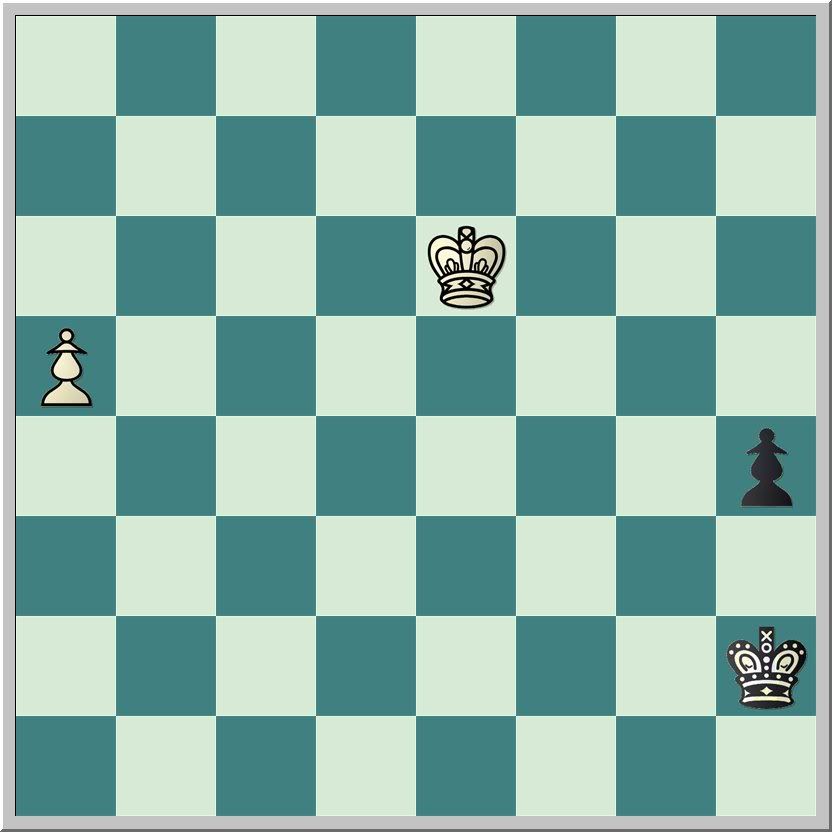
The direct effort of pushing the a-pawn leads to this theoretical draw:
White to move =
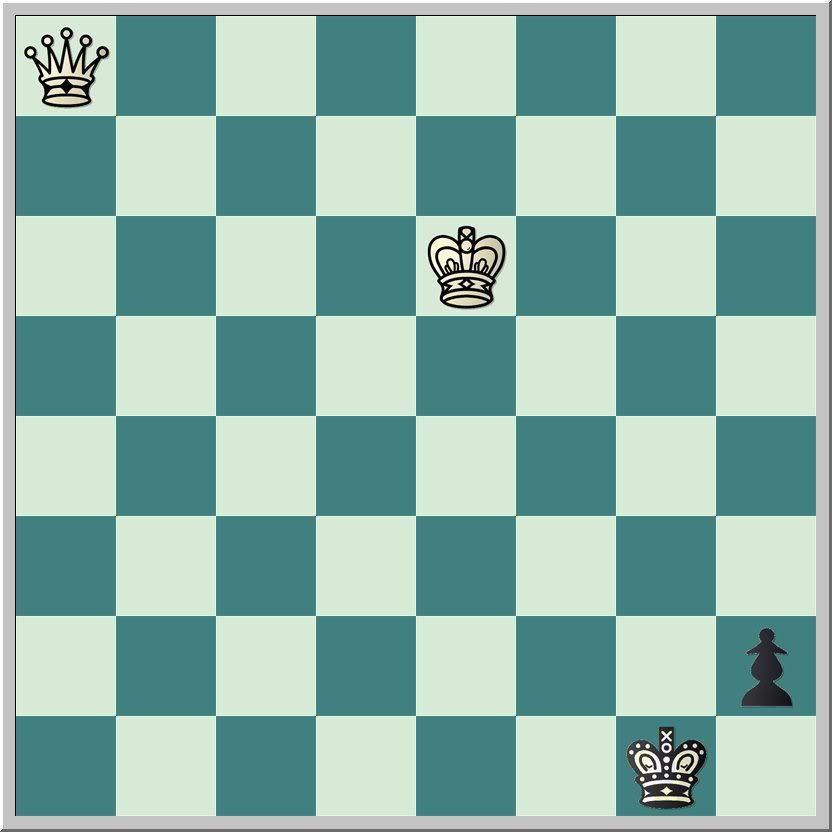
The other logical try begins
1.Kf5 h3 2.Kg4 Kg2 3.a6 h2 4.a7 h1Q
White to move +-
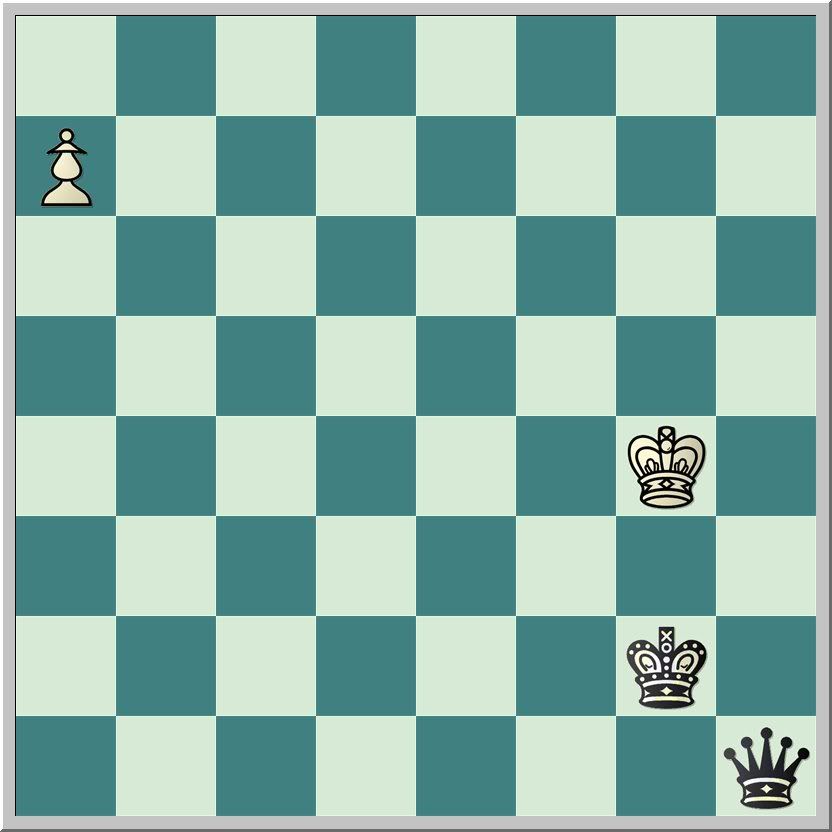
Black queens first, but White gets the first check. After some maneuvering, Black will be in zugzwang. The queen finally can move, but every move results either in the loss of the queen with mate to follow, or to immediate checkmate.
Black to move +-
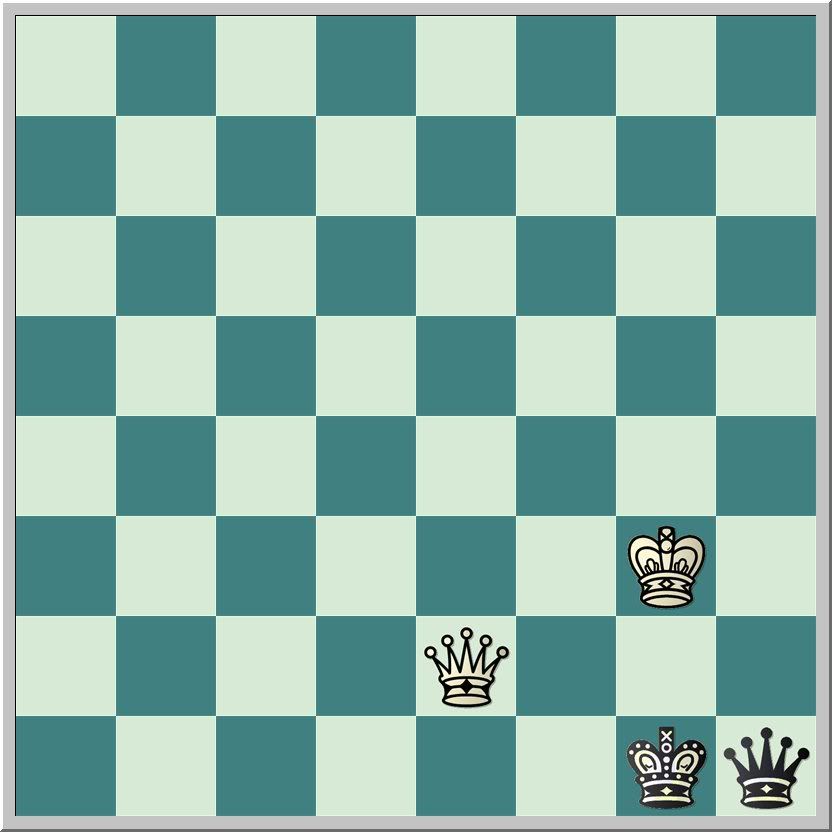 The Composer
The Composer
According to
Harold van der Heijden, Ladislav Prokeš (1884-1966) is the fourth most prolific composer of chess endgames ("My Computerised Collection,"
EG 130 [October 1988], 413). He published over one thousand studies through the course of his life.
If there is a single composer whose work is likely to make studies really popular, that composer is Prokes. His positions have few pieces, and the pieces are naturally placed. The solution is short. Profound and lengthy analysis is not needed. The position leads the solver to think that a direct game-approach is sufficient, so that when this proves not to be so the solver will have learned something, and he will have been pleasantly surprised. This means that what he learns he is likely to retain, and from a typical Prokes study he can learn not only the tactical trick or tricks that are the composer's idea but also the simple ground rules of theory that dictate the course of moves.
A.J. Roycroft, "Ladislav Prokes: The Player's Composer," EG 7 (January 1967), 157-158.
The
Prokes maneuver, described well at Wikipedia with a link to a more detailed article at Tim Krabbe's excellent site, is worth knowing about. Also worth knowing is this elementary position that appears as Polgar #14 in
Chess Endgames without attribution to Prokes. It is attributed to him in Irving Chernev,
Practical Chess Endgames (1961), 15.
White to play +-
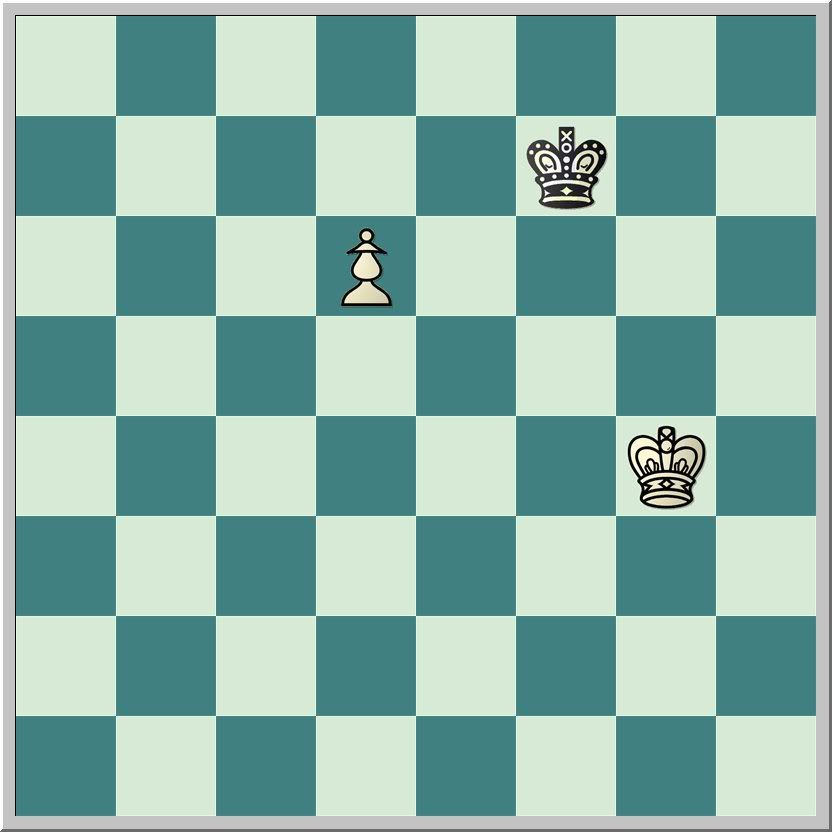
Chernev is succinct: "White wins this ending by getting the opposition,
and maintaining it" (15).
 The direct effort of pushing the a-pawn leads to this theoretical draw:
White to move =
The direct effort of pushing the a-pawn leads to this theoretical draw:
White to move =
 The other logical try begins 1.Kf5 h3 2.Kg4 Kg2 3.a6 h2 4.a7 h1Q
White to move +-
The other logical try begins 1.Kf5 h3 2.Kg4 Kg2 3.a6 h2 4.a7 h1Q
White to move +-
 Black queens first, but White gets the first check. After some maneuvering, Black will be in zugzwang. The queen finally can move, but every move results either in the loss of the queen with mate to follow, or to immediate checkmate.
Black to move +-
Black queens first, but White gets the first check. After some maneuvering, Black will be in zugzwang. The queen finally can move, but every move results either in the loss of the queen with mate to follow, or to immediate checkmate.
Black to move +-
 The Composer
According to Harold van der Heijden, Ladislav Prokeš (1884-1966) is the fourth most prolific composer of chess endgames ("My Computerised Collection," EG 130 [October 1988], 413). He published over one thousand studies through the course of his life.
The Composer
According to Harold van der Heijden, Ladislav Prokeš (1884-1966) is the fourth most prolific composer of chess endgames ("My Computerised Collection," EG 130 [October 1988], 413). He published over one thousand studies through the course of his life.
 Chernev is succinct: "White wins this ending by getting the opposition, and maintaining it" (15).
Chernev is succinct: "White wins this ending by getting the opposition, and maintaining it" (15).










I liked #50, really nice win . I find that winning or saving 1/2 point in the endgame can be no less satisfying as in the middlegame.
ReplyDelete